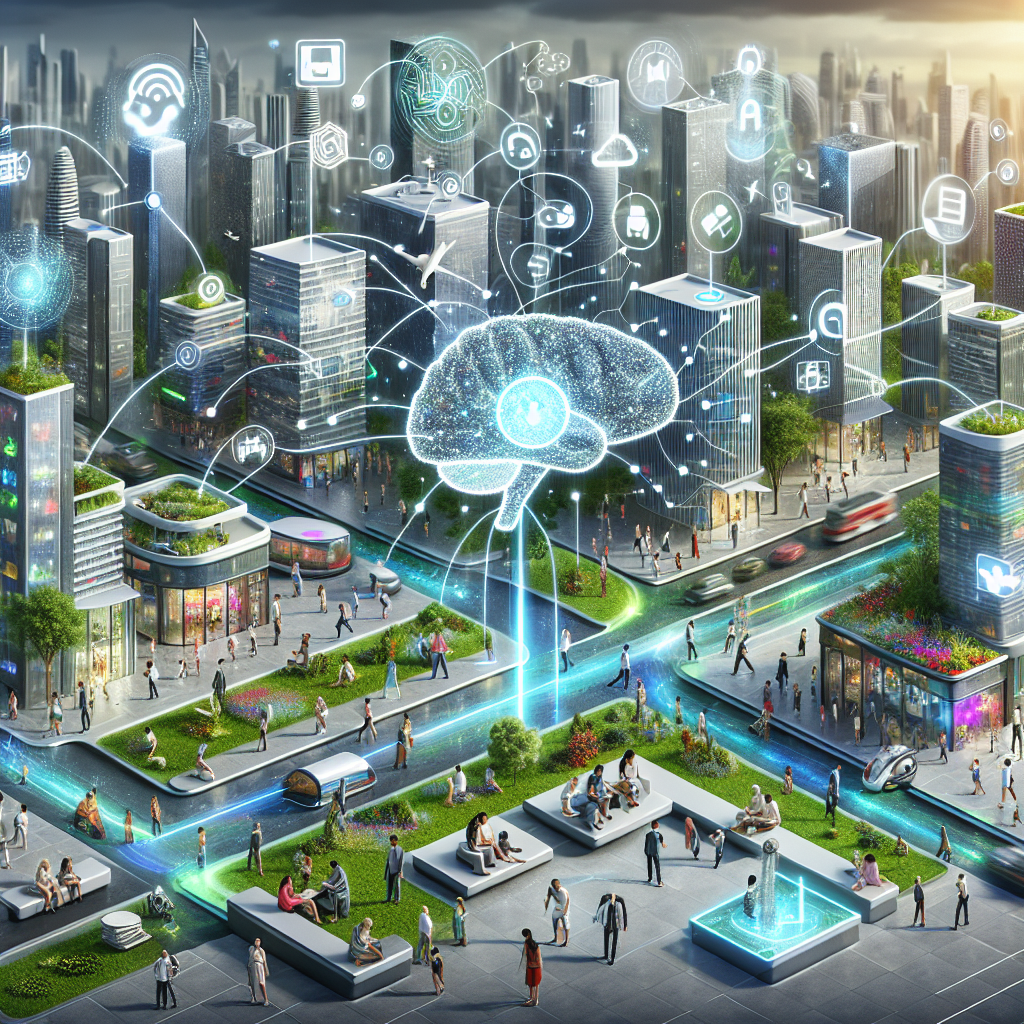[ad_1]
Artificial Intelligence (AI) has become a key component in the development of smart cities around the world. As AI technologies continue to advance, they are being integrated into various aspects of urban life, from transportation and energy management to healthcare and public safety. While AI offers numerous benefits in improving efficiency and quality of life in smart cities, it also raises important ethical concerns that must be addressed.
Understanding AI in Smart Cities
AI in smart cities refers to the use of artificial intelligence technologies to collect, analyze, and interpret data in order to make decisions and automate processes within urban environments. These technologies include machine learning, natural language processing, computer vision, and robotics, among others. AI systems in smart cities are designed to optimize resource allocation, enhance public services, and improve overall urban management.
Ethical Implications of AI in Smart Cities
While AI has the potential to bring significant benefits to smart cities, it also poses ethical challenges that need to be carefully considered. Some of the key ethical implications of AI in smart cities include:
- Privacy: AI systems may collect and analyze vast amounts of personal data, raising concerns about privacy and data protection.
- Transparency: The decision-making processes of AI systems can be opaque and difficult to understand, leading to questions about accountability and fairness.
- Security: AI systems can be vulnerable to cyberattacks and hacking, posing risks to the security of smart city infrastructure and residents.
- Bias: AI algorithms can unintentionally perpetuate biases and discrimination, resulting in unfair outcomes for certain groups in society.
- Autonomy: The increasing reliance on AI in smart cities raises concerns about the loss of human control over important decisions that affect urban life.
Addressing Ethical Concerns
To navigate the ethical implications of AI in smart cities, it is essential for policymakers, technologists, and citizens to work together to establish guidelines and regulations that promote ethical AI development and use. Some strategies for addressing ethical concerns include:
- Transparency and Accountability: AI systems should be designed to be transparent and accountable, with clear mechanisms for explaining their decision-making processes and addressing errors or biases.
- Data Privacy: Strict data privacy regulations should be implemented to protect the personal information of residents and ensure that AI systems are not misused.
- Security Measures: Robust cybersecurity measures should be put in place to safeguard AI systems from external threats and ensure the integrity of smart city infrastructure.
- Fairness and Equity: Bias mitigation techniques should be employed to prevent AI algorithms from producing discriminatory outcomes based on race, gender, or other sensitive attributes.
- Human Oversight: Human oversight and intervention should be maintained in AI systems to ensure that important decisions are not left solely to automated processes.
Conclusion
As AI technologies continue to play a central role in the development of smart cities, it is crucial to carefully navigate the ethical implications that accompany their use. By addressing issues such as privacy, transparency, security, bias, and autonomy, stakeholders can work together to ensure that AI in smart cities is deployed in a responsible and ethical manner. Through collaboration and a commitment to ethical principles, smart cities can harness the power of AI to create more efficient, sustainable, and inclusive urban environments for all residents.
FAQs
Q: How can AI in smart cities benefit residents?
A: AI technologies in smart cities can improve efficiency in public services, optimize resource allocation, enhance urban planning, and support sustainable development, ultimately leading to a higher quality of life for residents.
Q: What are some challenges in ensuring ethical AI development in smart cities?
A: Challenges include protecting data privacy, ensuring transparency and accountability in decision-making processes, mitigating biases in AI algorithms, and maintaining human oversight over automated systems.
Q: How can policymakers and technologists collaborate to address ethical concerns in AI development?
A: Policymakers can establish regulations and guidelines for ethical AI development, while technologists can incorporate principles of transparency, fairness, and accountability into the design and implementation of AI systems in smart cities.
Q: What role do citizens play in navigating the ethical implications of AI in smart cities?
A: Citizens can advocate for transparency and accountability in AI technologies, participate in decision-making processes around AI deployment in their communities, and hold policymakers and developers accountable for ethical practices.
[ad_2]


